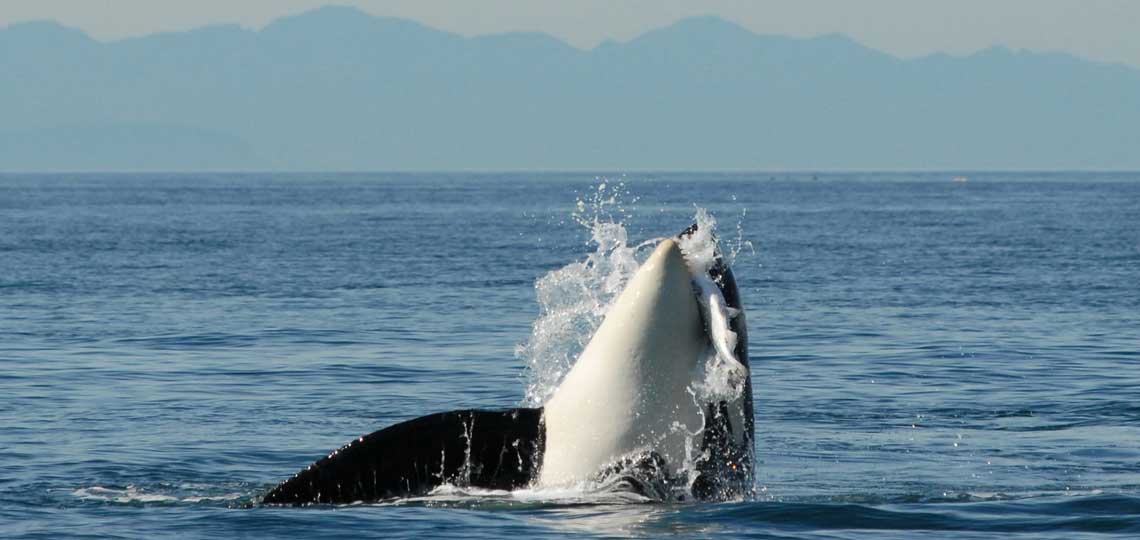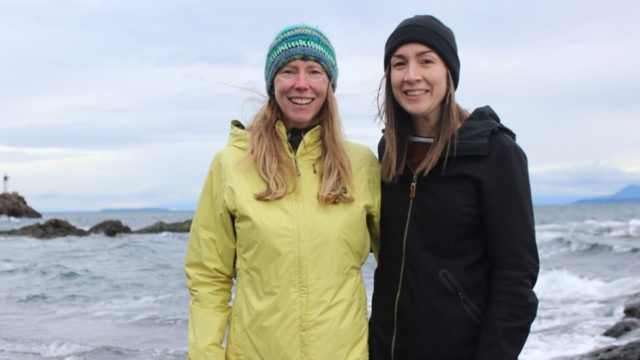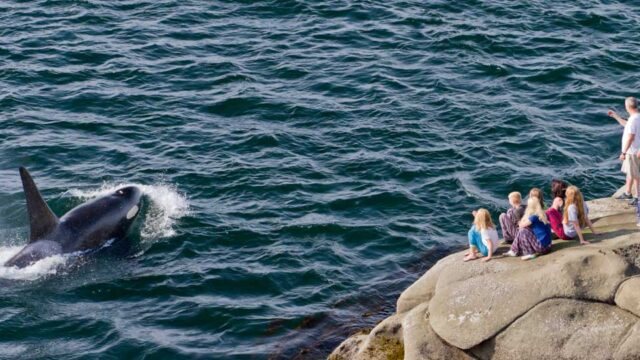Earlier this week, we received devastating news about the Southern Resident killer whales.
The Center for Whale Research declared three whales — J17, a 42-year-old female, K25, a 28-year-old male, and L84, a 29-year-old male — dead. This brings the population down to just 73 orcas.
Like many others who care about the Southern Residents, I felt the force of this triple loss deeply.
In such a precarious population, every whale is critical for the group’s survival.
Southern Residents live in matriarchal societies, guided by grandmothers who carry and share important knowledge with their families. Without J17, the population has lost one of its vital matriarchs.
The deaths of K25 and L84 are also blows. Without these males, there are fewer potential mates.
Distressingly, this could limit genetic diversity in the population, threatening the odds that future calves will be born healthy. We already know this is a significant problem in the Southern Resident killer whale population. A study published in April 2018 found that only two males fathered more than half the Southern Resident calves born since 1990.
These recent deaths are another sign that members of this endangered population cannot handle existing threats to their survival.
We need to address the three big existing threats to the Southern Residents if they are to recover: a lack of Chinook salmon, underwater noise and vessel traffic, and pollution in Southern Resident habitat. But we also, unequivocally, need to say no to projects that will further threaten these whales. And to do that, we need your help.
On behalf of our clients, Ecojustice is fighting two projects that would push the Southern Residents even closer to extinction: The Roberts Bank Terminal 2 expansion and the Trans Mountain pipeline project.
Both projects would increase traffic and underwater noise in critical Southern Resident habitat, making it harder for the whales to navigate, hunt, and communicate. Project-related shipping would also raise the risk of deadly ship strikes and, potentially, a catastrophic oil spill.
On top of this, the shipping traffic from the Trans Mountain pipeline project would raise the risk of a catastrophic oil spill. As we witnessed with the Exxon Valdez spill in Alaska, this type of disaster has the potential to sentence an entire population of whales to extinction.
With your help, Ecojustice is pulling out all the stops to protect the Southern Residents from these projects. In July, we launched round two of our legal fight against the Trans Mountain pipeline expansion. On Aug. 26, we will submit closing arguments to a federal review panel on Terminal 2.
Protecting Southern Resident killer whales has been one of the core parts of Ecojustice’s work for decades. And the longer this fight continues, the greater the stakes.
We are in a biodiversity crisis and a climate emergency. This lends added urgency to our fight against Terminal 2, a project that doesn’t only jeopardize orcas, but also threatens fragile ecosystems and other species, including the wild salmon Southern Residents depend on. The climate crisis also makes our fight against Trans Mountain, a project that is fundamentally incompatible with a climate-safe future, even more significant.
The loss of J17, K25, and L84 is terrible. However, this moment is also a powerful reminder of how important Ecojustice’s work is. As a lawyer and whale-lover, I’m grateful for the Ecojustice supporters who make it possible for me to keep fighting to defend the Southern Residents that remain, to ensure their present survival and future recovery.
It’s not always easy. But, in moments when an endangered population is disappearing before our very eyes, it’s clear that fighting for its survival is immeasurably important.





